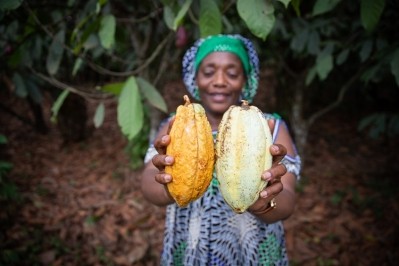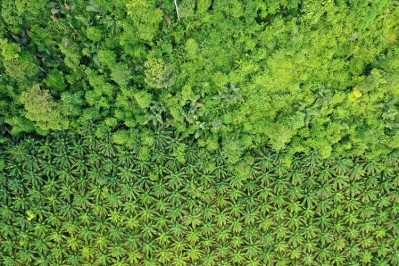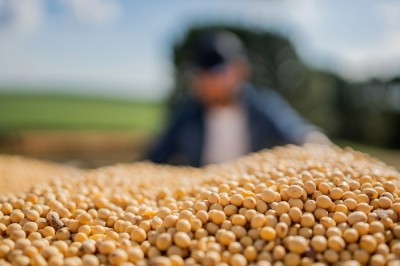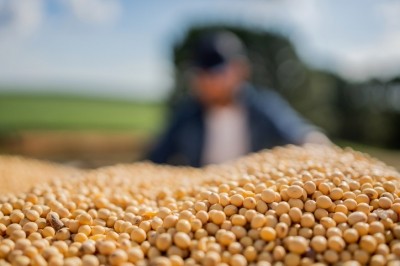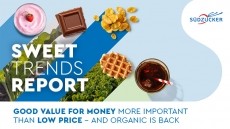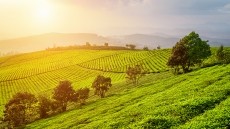Should maize be included in EUDR?
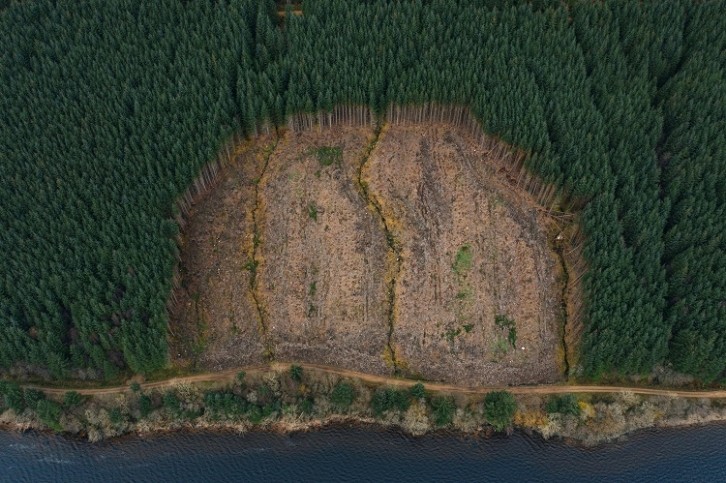
Much has been said of EUDR, the EU’s deforestation regulation, due to come into force on 30 December 2024. But while most of the focus has been on suppliers and manufacturers’ ability to meet the deadline, there has been little discussion on whether EUDR goes far enough to help prevent deforestation. We look at one commodity in particular, maize, to see if it should be part of EUDR and if it might be included at a later date.
The majority of imported maize, consumed within the European Union (EU), originates from Brazil. Or more specifically, deforested lands in Brazil, and import volumes are rising.
In fact, according to figures from the European Commission, maize imports have increased by 259% (448 thousand tonne increase), since January 2022.
So, should maize be included in EUDR, and will it or any other high-risk commodities be included at a later date?
Should maize be included in EUDR?
The current list of food and beverage items, included within the EU’s deforestation regulation, are soy, beef, palm oil, cocoa and coffee. However, there are people who believe the maize should also be included.
"I think in the future we would expect the EU to conduct an evidence-based assessment of which commodities are actually contributing the most to the EU’s deforestation footprint, in particular maize,” Julia Christian, Forests and Agriculture Campaigner for environmental organisation, Fern, told FoodNavigator. “It's a growing contributor to the deforestation footprint and it's already quite significant.”
What’s more, there’s an argument that maize should have been included in the current regulation.
“It probably should have been included in the first round,” says Fern’s Christian.
So, will maize be added to EUDR at a later date?
Will maize be included in EUDR?
While the European Union cannot currently provide specifics on this matter, it appears that EUDR will continue to be reviewed, following the enforcement of the regulation as it stands.
“We can say that the possible extension to other commodities will be assessed in the 2025 review,” a spokesperson for the European Commission told FoodNavigator. “The work on the relevant study is ongoing.”
In addition to this, much has been said about the potential extension to the EUDR deadline, sparking questions of whether it will be delayed or not.
What is maize?
Maize, also known as corn, is a tall grass that produces cereal grain. It’s used to produce cornstarch, corn oil, corn syrup and cornmeal.
Maize is also used in animal feed across the world.

What is EUDR?
EUDR stands for European Deforestation Regulation. It is an EU directive ensuring that all products on the EU market, and crossing into and out of the European Union, comply with EU deforestation regulation.
EUDR dictates that products containing any of the seven deforestation-risk commodities - soy, beef, palm oil, wood, cocoa, coffee and rubber - must prove they do not originate from land deforested after 31 December 2020.
Companies must obtain certification to ensure their products comply with the regulation.

Will EU delay EUDR deadline?
Though pressure to delay EUDR is intensifying, with the US government recently wading into the debate, the EU is currently maintaining that the 30 December 2024 deadline will remain in place.
“The regulation was adopted by the European Parliament and the Council. Therefore, in the first instance, our role and responsibility as the Commission is to implement this law,” a spokesperson for the European Commission told FoodNavigator. “This law entered into force in June last year and we are working very actively, in close collaboration with all stakeholders, to prepare its entry into effect. The co-legislators set the date for this entry into effect for next year, due to the urgency linked to the continued high rates of deforestation. We keep the situation under constant review, and we are working hard to ensure that all the conditions are met for a smooth implementation of the law.”
Other major organisations involved with the implementation of EUDR have supported this statement from the Commission.
“We have received no indication at this stage that the implementation of the EUDR will be delayed,” Michelle Deugd, director of forests and agriculture for the Rainforest Alliance, told FoodNavigator in March.
Whether the deadline will be delayed or not has yet to be seen, but we certainly wouldn’t bet against a change at the eleventh hour.
However, while the Commission is remaining firm on the 30 December deadline, it has come under some criticism for its lack of support towards stakeholders.
“I think support has been woefully inadequate,” says Fern’s Christian. “There's a lot of talk about supporting smallholders and producer countries - there’s the new Team Europe initiative budget and there's the Sustainable Cocoa initiative, but this still isn’t translating into direct support for smallholders on the ground.
“Also, if you look at the question of, quite simply, are smallholder cooperatives able to directly access funds to help them put in place the elements of a traceability system, that will allow them to keep selling to EU buyers, the answer is no.”
So, what more should the EU be doing to support stakeholders to implement EUDR?
“There should be an on-demand fund that smallholder cooperatives can access to complete the EUDR compliance preparation work, and that doesn't exist in any in any producer country that I'm aware of. The EU needs to put much more funding towards this and much more staff towards providing support. They also need to support producer countries in developing EUDR-compliant national traceability systems.”

Why reversing deforestation is so important
Forests and other biodiverse-rich landscapes such as grasslands, peatlands and wetlands, are an essential part of our ecosystem, providing oxygen, improving air quality by removing CO2, conserving water, preserving soil, and supporting wildlife. In short, humanity’s survival depends upon trees and plant life across the planet.
According to the UN FAO (United Nations Food and Agriculture Organization), it’s estimated the world has been cutting down 10m hectares of trees every year since 2010. The primary reasons for this being to make space to grow crops and rear livestock, as well as for the use of the trees themselves in the production of materials such as paper and furniture.
Forest loss contributes nearly five billion tons of CO2 into the earth’s atmosphere every year. This is equivalent to nearly 10% of all human emissions annually. NASA researchers found that accelerated slashing and burning methods of land clearing in Borneo, the third-largest island in the world and home to one of the oldest rainforests, contributed to the largest single-year global increase in carbon emissions in two millenniums.
